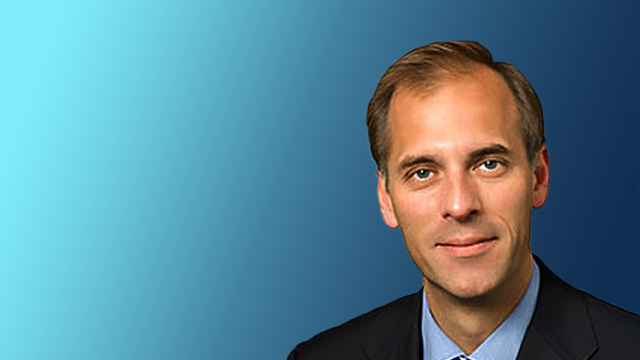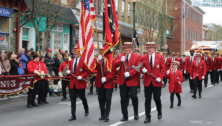Chester County Leadership: Mark Zandi, Chief Economist, Moody’s Analytics

Mark Zandi, the Chief Economist at Moody’s Analytics and easily Chester County’s most widely quoted resident, spoke with VISTA Today about growing up in the Philadelphia suburbs, how his hard-working father, an Iranian immigrant and Penn Civil Engineering professor, led his family by example, and what he learned from his first job as a golf caddy.
Zandi also discussed his education at Penn’s Wharton School, what he calls “a series of good luck” that he experienced at the Ivy League school, the genesis of Moody’s Analytics and his goal of growing Moody’s Analytics into, “the premier global economic consulting firm in the world.”
Where were you born and where did you grow up, Mark?
I was born, the oldest of five kids, in Atlanta, Georgia in 1959. My father was a Ph.D. student at Georgia Tech at the time. Family lore has it that he was Georgia Tech’s first Civil Engineering Ph.D. graduate.
What did your parents do?
My father is an Iranian immigrant. He came to the United States on a Truman Grant to study at George Tech. He married my mom, an American, and they had me here before going back to Iran.
We came back to the United States in the 1960s when I was three years old, and my father began teaching at the University of Delaware. We moved to the Philadelphia suburbs.
My mother took care of my four siblings and me.
So you were not in Iran for the Iranian Revolution?
No, we were back in the States at that time, but my father had many family members who were involved. There was a tremendous amount of turmoil at that time.
What do you remember about growing up in this area?
We lived near Villanova after my family relocated. I didn’t know Chester County at the time because we mainly spent our time in the eastern suburbs of Philadelphia. I went to Upper Merion High School and have a lot of great memories from that time.
What kind of music were you listening to in high school?
The Beatles, The Stones, Queen, Yes. I also listened to Maynard Ferguson back then and went to see him play in the clubs.
I played the saxophone, clarinet, and the flute in a jazz band that was a combination of swing and jazz music. There was twenty of us in the group and we toured all over the country and Europe competing in competitions.
How did you finance your travels?
We raised money. We had car washes, sold hoagies and collected bottles! I’m sure my parents put some money into it. We rented-to-own instruments, which were very expensive – several hundred dollars – at the time.
Was there any pressure to do well in school?
There was no pressure to do well in school; it was just assumed that we would do well. My father led by example. As a professor, he was able to work from home a lot, so I saw him work very hard. He would sit in his big reclining chair and just work all the time. I saw that, and I figured that was the way it should be.
What was your first job?
I was a caddy at Gulph Mills Golf Course. It’s a beautiful, hilly golf course in Gulph Mills. I would walk from our house, which was about 25 minutes, through the woods to go there every day in the summer and caddy. It was great exercise and money!
There was a couple there, probably in their 40s, who would run between their shots on the course. That was their exercise! There was one particularly hot day one summer where when we got to the 18th hole, I asked if we could just wait one minute before running to the next shot. She ran up and got the caddy master because she was afraid I was going to pass out!
What lessons did you take from that experience that stay with you today?
Caddy was all about the people and the service you provide to them. It was not just about carrying the bags and making sure the clubs were clean, and I was interacting with many different people some of whom I got to know very well. Some were nice, and some weren’t. I had to learn how to navigate through all of those personalities.
Do you golf today?
I used to golf with my father-in-law when he was alive. He was an avid golfer. I don’t get out as much now because it’s a very time-consuming sport.
Where did you go to college?
I went to Wharton at Penn for my undergraduate degree and got my Ph.D. in economics from Penn.
Did you look anywhere else?
No, because Penn was free! There was no cost because my father taught there, and it was a great school.
Looking back, was Penn a good choice for you?
Yes, I loved my time there, once I found Economics. I remember my very first Management class where a professor asked the class what they would do if they were a business manager with leftover money budgeted for the year. The right answer, according to the professor, was to spend the money on something, anything, just to ensure you didn’t lose your budget for next year. A management professor may not have a problem with that answer, but an economics professor surely would.
Who helped you get to where you are today, Mark?
I’m not sure I can point to someone giving me a break, but more just a series of good luck. Luck number one, I found something I really loved in my study of economics. Most people have to figure that part out. Second, I had great professors at Penn, who helped me succeed.
As part of my Ph.D. program, I worked at an economic consulting firm that was established by my Ph.D. advisors Lawrence Klein who inspired me. He was awarded a Nobel Memorial Prize in Economic Sciences and was at the top of his field. I worked at his consulting firm while in school, and met a very good friend there, Paul Getman, who pushed me along to start a company together with my brother Karl Zandi.
I am more risk averse, and they were more risk takers and were thus instrumental in getting things going. And then most importantly of all is the good luck in having a loving and supportive wife and family.
How did Moody’s Analytics get started?
We started as Regional Financial Associates in 1990. Back then, interstate banking was just beginning, so banks had to look beyond their state boundaries, and our company provided the data analytics to help them do that. By the late 1990s, the internet was just beginning to take off, so we were quick to buy the URL Economy.com and put our information on the web. We expanded our client base and offerings. In November 2005, we sold our company to Moody Analytics.
At the beginning of 2019, what are your biggest opportunities?
We are now a global business operating under Moody’s, which has a presence almost everywhere on the planet. A few years ago, we expanded into the Middle East, and more recently into Asia. We are just now moving into the Latin American market.
While it may sound haughty to say, our goal is to be the premier global economic consulting firm in the world. While we have a wide array of clients, much of our growth has been supported by global financial institutions, helping them navigate the massive changes that have occurred since the financial crisis.
Having said this, we also serve a wide array of clients – government, businesses, utilities, and non-financial businesses.
Looking into the new year, What’s the biggest challenge you have as a company?
Our biggest challenge is finding the right people to fill open positions. We are always working hard to find the best and the brightest. I’m frustrated by our immigration policies because we hire people from all over the world. Many times, I cannot bring them to work in the United States.
A few years ago, we found a world-class economist from the Czech Republic and wanted to bring them to West Chester. We could not bring them here, so Moody’s suggested opening a Prague office. We now have over fifty people working in Prague! It’s a great example of 50 jobs that could have been based here in West Chester, but are now in Prague as a result of our immigration policies.
As it turns out, Prague is Moody’s most cost-effective office in the world; West Chester is a close second!
How committed are you and Moody’s to Chester County?
We’re here! Chester County is home and we are not moving! That was the deal when we sold the company. Moody’s is committed as well because of the proven results. Chester County has a unique blend of city, suburban and exurban living opportunities that make living and working here very attractive.
Have you stepped away from the business at all?
No. I’m fortunate that my brother Karl runs the business now, and allows me to focus on being an economist. Moody’s also has a great culture, most importantly being intellectual freedom – I can think, write and talk about anything that I feel is important to understanding the global economy and financial markets.
What do you do in your free time?
I love what I do so that’s pretty much all I do! I travel a lot. I have three children — one in Philadelphia, one in London, and the youngest at Georgetown.
I have several nieces and nephews who are world-class soccer or collegian ice hockey players so I’m frequently traveling to take in one of their games.
Finally, Mark, what is the best piece of advice you’ve ever received?
My father taught me to be persistent. Find something you like and stick with it. Work to be the best at whatever you have chosen to do.
Connect With Your Community
Subscribe to stay informed!
"*" indicates required fields




























![95000-1023_ACJ_BannerAd[1]](https://vista.today/wp-content/uploads/2023/03/95000-1023_ACJ_BannerAd1.jpg)



















